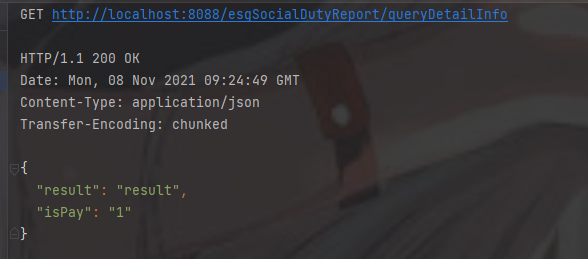需要实现当前接口是否为付费版本,如果不是付费版本,修改返回的参数
一、自定义注解
import org.springframework.core.annotation.Order; import java.lang.annotation.*; /** * 独立收费版本 付费模块 * @author lfq */ @Target(ElementType.METHOD) @Retention(RetentionPolicy.RUNTIME) @Documented @Order(1) public @interface PayModule { /** * 模块名 */ String moduleName(); /** * 模块对应码值 */ String moduleValue(); }
二、创建切片类
import com.stock.capital.services.announcement.common.annotation.PayModule; import com.stock.capital.services.announcement.common.dao.PayModuleMapper; import com.stock.core.dto.JsonResponse; import com.stock.core.service.BaseService; import org.apache.commons.lang3.StringUtils; import org.aspectj.lang.ProceedingJoinPoint; import org.aspectj.lang.annotation.Around; import org.aspectj.lang.annotation.Aspect; import org.aspectj.lang.annotation.Pointcut; import org.aspectj.lang.reflect.MethodSignature; import org.springframework.beans.factory.annotation.Autowired; import org.springframework.stereotype.Component; import java.lang.reflect.Method; import java.util.HashMap; import java.util.Map; /** * @author lfq */ @Component @Aspect public class PayModuleAspect { // @Autowired // private PayModuleMapper payModuleMapper; @Pointcut("@annotation(com.stock.capital.services.announcement.common.annotation.PayModule)") public void annotationCallTime() { } // @Around(value = "annotationCallTime()") // public JsonResponse doAround(ProceedingJoinPoint joinPoint) { // MethodSignature ms = (MethodSignature) joinPoint.getSignature(); // Method method = ms.getMethod(); // PayModule annotation = method.getAnnotation(PayModule.class); // String moduleValue = annotation.moduleValue(); // // Map<String, Object> params = new HashMap<>(2); // params.put("companyCode", getUserInfo().getCompanyCode()); // params.put("moduleValue", moduleValue); // // try { // JsonResponse response = (JsonResponse) joinPoint.proceed(); // if (response.isSuccess()) { // Map<String, Object> result = (Map<String, Object>) response.getResult(); // Integer payFlay = payModuleMapper.queryPayModule(params); // if (payFlay != null) { // result.put("isPay", payFlay); // } // } // return response; // } catch (Throwable throwable) { // // } // return null; // } @Around(value = "annotationCallTime()") public Object doAround(ProceedingJoinPoint joinPoint) { MethodSignature ms = (MethodSignature) joinPoint.getSignature(); Method method = ms.getMethod(); PayModule annotation = method.getAnnotation(PayModule.class); String moduleValue = annotation.moduleValue(); try { Map<String, Object> response = (Map<String, Object>) joinPoint.proceed(); if (StringUtils.equals("0013", moduleValue)) { response.put("isPay", "1"); } return response; } catch (Throwable throwable) { } return null; } }
3、测试返回结果
@RequestMapping(value = "/queryDetailInfo", method = RequestMethod.POST) @ResponseBody @PayModule(moduleName = "", moduleValue = "0013") public Map<String, Object> queryDetailInfo() { Map<String, Object> response = new HashMap<>(2); response.put("result", "result"); return response; }
返回结果:

{ "result": "result", "isPay": "1" }
@RequestMapping(value = "/queryDetailInfo", method = RequestMethod.GET) @ResponseBody @PayModule(moduleName = "", moduleValue = "0011") public Map<String, Object> queryDetailInfo() { Map<String, Object> response = new HashMap<>(2); response.put("result", "result"); return response; }
返回结果
{ "result": "result" }
